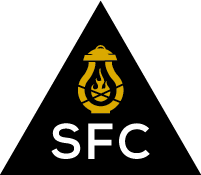“I am the good shepherd, I know my own and my own know me, just as the Father knows me and I know the Father, and I lay down my life for the sheep. And I have other sheep that are not of this fold. I must bring them in also, and they will listen to my voice.” – Jesus, from the Gospel of John, chapter 10
I have often wondered: “Who are these ‘other sheep?’” Who could be a member of this one flock, but who are also outside the fold? Who are the people least likely to be recognized as part of the flock?
In western Christianity we have taken a posture of defining who is not in (and not welcome) while spending very little time considering (and being surprised) by who is in the flock.
The story of Christianity, honest with herself, would tell you that if someone doesn’t believe the right way and act the right way, they’re not in the club. And of course, when you add nationalism, patriotism, denominationalism, etc into the mix, the boundaries of right belief and right behavior are continually shrunk until a very small and elite group is considered in, and everybody else is out.
Walls get built, Us vs. Them becomes the news of the day, bigotry, fear, and hatred are given license, and we become blind to the “other sheep.”
And this is the way the religious elite, watchdogs of orthodoxy, and the keepers of right religion like it. Why? Because religious people love a good fight, don’t we? We like to assert our rightness, our correctness, our straight and narrowness. We love to sniff out heretics and then we surround them, not to embrace them but to enact mob law…street justice, like what happened to Jesus on more than one occasion.
Dear, dear Corinthians, I can’t tell you how much I long for you to enter this wide-open, spacious life. We didn’t fence you in. The smallness you feel comes from within you. Your lives aren’t small, but you’re living them in a small way. I’m speaking as plainly as I can and with great affection. Open up your lives. Live openly and expansively! – Saint Paul to the church in Corinth, 2 Corinthians 6:11-13
Now I know street justice in the church is a little tame, nobody’s getting knifed. But it begs the question: “How do we treat and interact with people who have different thoughts about God, opposing theologies, who believe and act in ways that just don’t seem right to you?”
What happens when we all get to heaven and we’re like, “What are they doing here?”
I have a feeling most of us will be really surprised by who these “other sheep” really are. Not only, I think most of us will be surprised and a little offended by how extraordinary Jesus’ inclusivity really is.
Jesus seldom validates the neat and tidy religious identities and boundaries that religious people do. Jesus doesn’t fit in with much of modern conservative theology or lifestyle and, let’s face it; based on some of what Jesus did and said, our current standards could easily brand him a “heretic.” Same is true with each of the gospel writers.
And so, I have to believe the life lived in Christ is much wider, far more generous and far more hospitable than the tiny boundaries we put on our fold. I pray that SFC communities across the planet would live openly, see people on the edges, and invite them in because the life of Christ – more than we know it – is always inviting us to the other person, to be otherish, and to embrace the world around us.
Challenge
1. Why do we often feel uncomfortable with people who are different?
2. Name a group you distrust, list ten things you have in solidarity with them. A list of ten can be time consuming and difficult in many cases, but see the exercise through and then ask:
3. How can I love and serve this group in Jesus’ name?
By Jer Postal | Whistler, Canada
